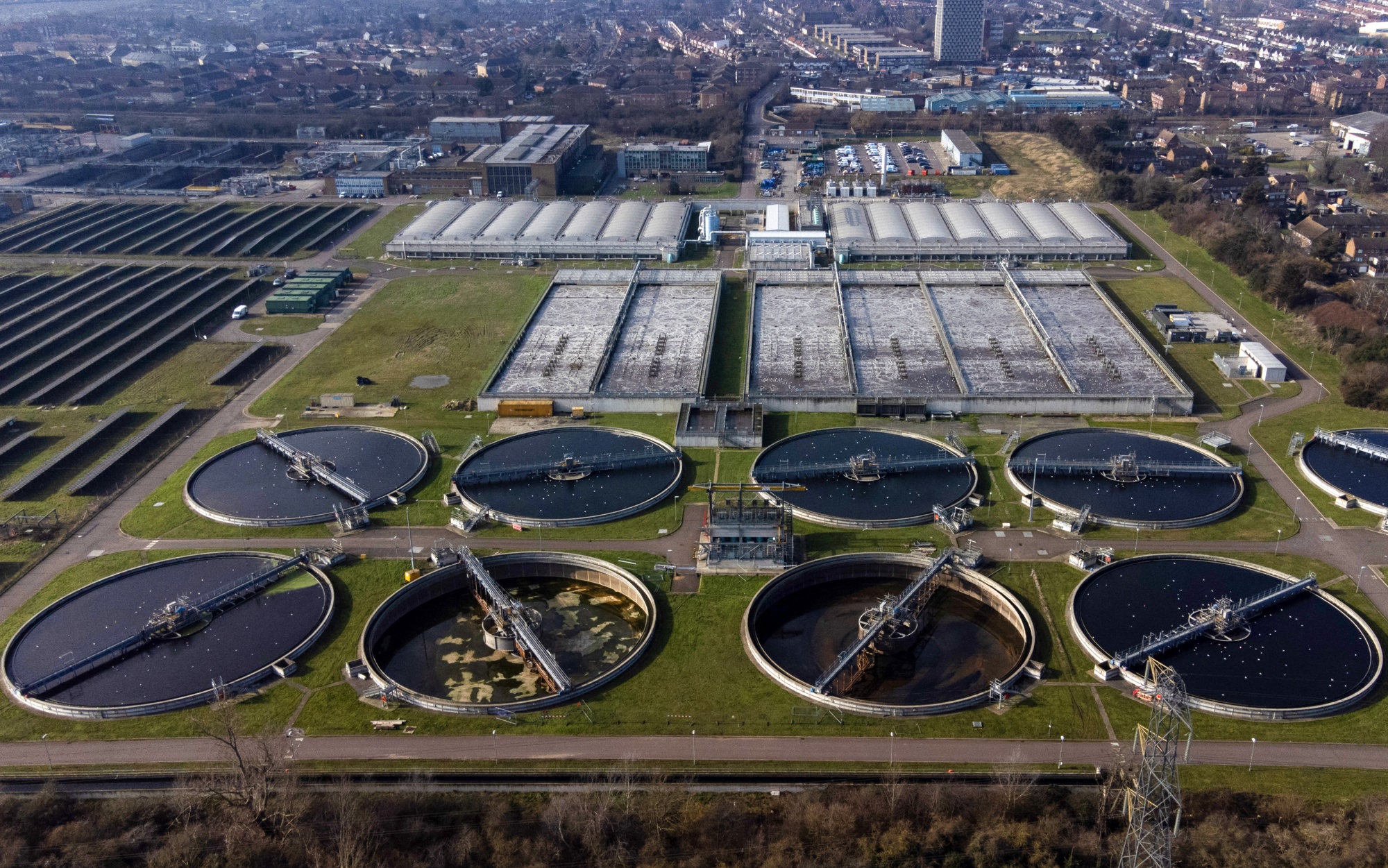Thames Water Enters Key Month to Hammer Out Terms of Rescue Deal
(Bloomberg) -- Thames Water’s financial rescue is entering a decisive month, as suitors haggle over creditor losses and the future of the indebted utility.
US infrastructure giant KKR & Co. and a group of the company’s creditors including Silver Point Capital and Elliott Management are due to submit their plans for fixing Thames to regulator Ofwat by the end of Friday. Negotiations are expected to run throughout June with agreement in summer — but for that, the successful bidder will need to cut a deal with the debtholders that currently control the company on the scope of their losses.
Thames has been on a long downward slope. Previous shareholders called the company uninvestible, writing off their stakes and leaving the keys to the creditors. The utility, which supplies about a quarter of the UK’s population, came close to running out of money several times before it finally unlocked an emergency loan from its senior creditors in March.
Thames picked KKR as its preferred option to provide £4 billion ($5.4 billion) in equity and the investment firm also plans to slash about £8 billion of debt. Ofwat will give recommendations and then the infrastructure investor’s proposal will be up for negotiation with the owners. The catch is - the owners are also the creditors and they will want to keep their losses to a minimum and have drafted their own plan for the regulator.
“It’s an exceptionally complex situation,” Tara Davies, co-head of KKR EMEA and European infrastructure, said on a Bloomberg TV interview earlier this week. “You’ve got the environmental agencies, you’ve got the lenders, you’ve got government, you’ve got Ofwat, so there’s a broad range of stakeholders there.”
Spokespeople for Thames Water, KKR and the Class A creditors declined to comment. Ofwat did not respond to a Bloomberg News request for comment.
Thames executives were grilled by a committee of lawmakers earlier this month who raised concerns about the lack of accountability within the company. The Thames board manages the company without controlling it because it’s in the hands of the creditors and the creditors aren’t accountable to anyone because there aren’t any shareholders, Alistair Carmichael, chair of the Environment, Food and Rural Affairs Committee said at the hearing.
Britain’s largest water and sewage firm has been seeking new equity as part of its efforts to turn around the business. The firm has long been weighed down by debts that now stand near £20 billion. Beyond its financial woes, the utility has been criticized for its poor environmental record, which has landed it with hefty fines from Ofwat.

While multiple proposals are common in debt restructurings, it could mean protracted discussions. And the stakes are even higher for Thames if an agreement is not reached as it could still risk falling into special administration regime, or SAR, a temporary state-supervised process akin to insolvency designed for bankrupt businesses that provide critical services.
Discussions promise to be a hard slog for all parties involved and will hinge on finding a compromise over the size of the debt cuts. If an agreement is reached the new owner will still need to go to the Competition and Markets Authority’s merger process.
Questions still remain about how attractive this investment is for either KKR or the creditors. Water companies are regulated and are required to set out their spending plans every five years with investor returns kept at a set rate.
The allowed rate of return on equity for the current five-year period is 5.1%. Ofwat will also face pressure to make some concessions on debt or equity.
Under KKR’s proposal, all of the more junior Class B bonds and loans, as well as debt at the holding level, amounting to approximately £3 billion will be wiped out, Bloomberg News reported. And there will also be a haircut of around £5 billion — or 25% — for senior creditors.
KKR wants to ensure it will control the business and make operational decisions on day-to-day basis. The firm is open to co-investment from creditors but their proposal isn’t expected to go into detail on this, as reported by Bloomberg.
KKR’s initial capital injection and agreed haircut with creditors will set the process of restoring the company’s investment grade status in motion. This is crucial and would allow Thames to raise debt and put it back on a financially healthy path, which according to the proposals being submitted to Ofwat, could take up to ten years, people familiar with the process said.
Thames Chief Executive Chris Weston told lawmakers earlier this month that more environmental fines by regulator would keep the company in a doom loop, further complicating its turnaround efforts.
What happens to Thames will come down to Ofwat and the creditors.
At the end of the day, “the stakeholders will decide what to do with Thames Water,” KKR’s Davies said.
©2025 Bloomberg L.P.





